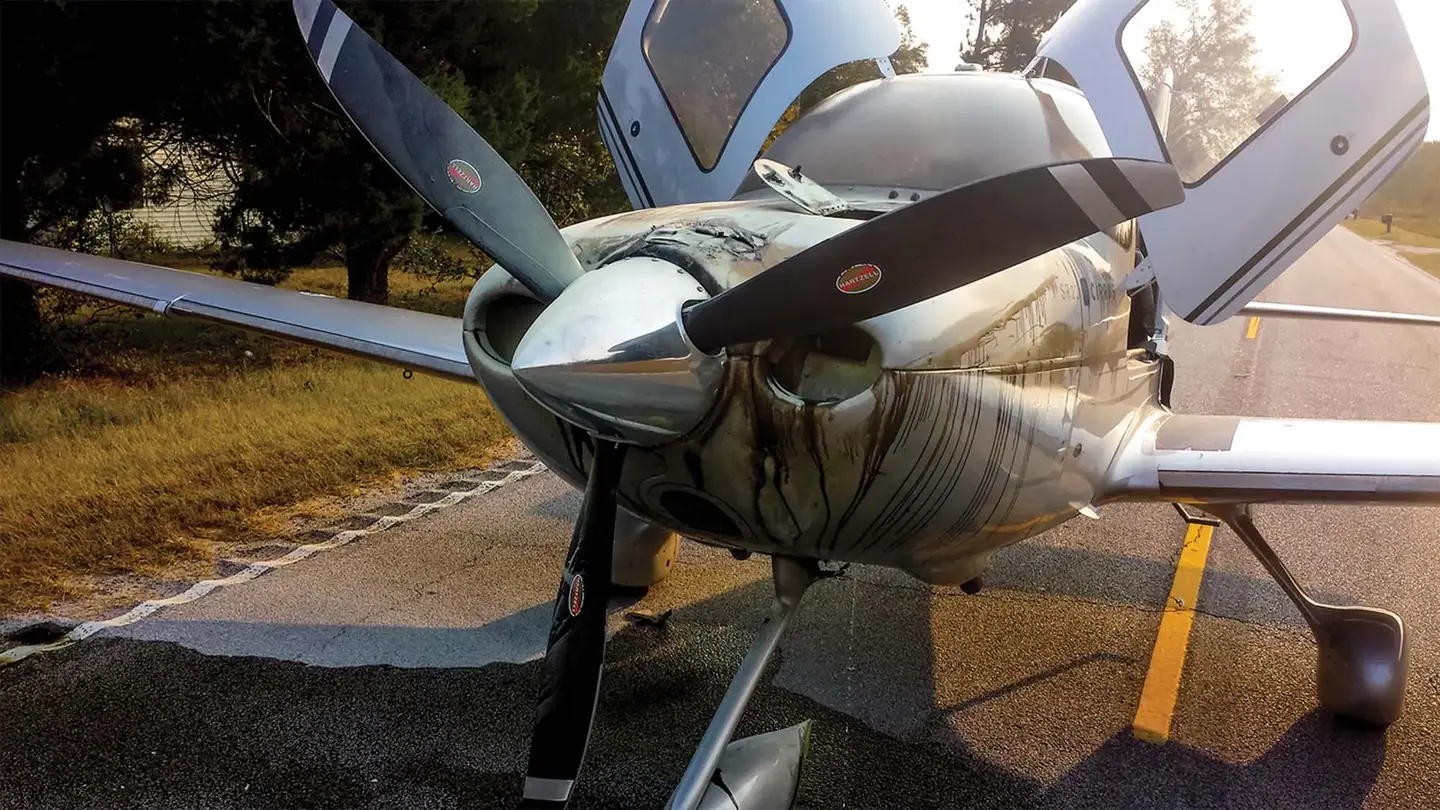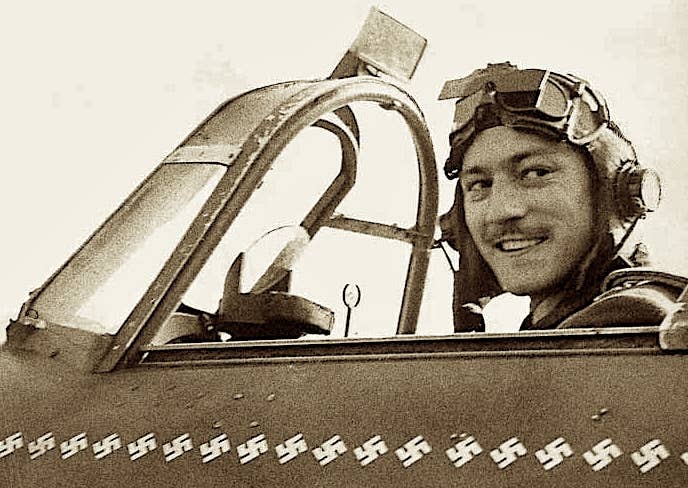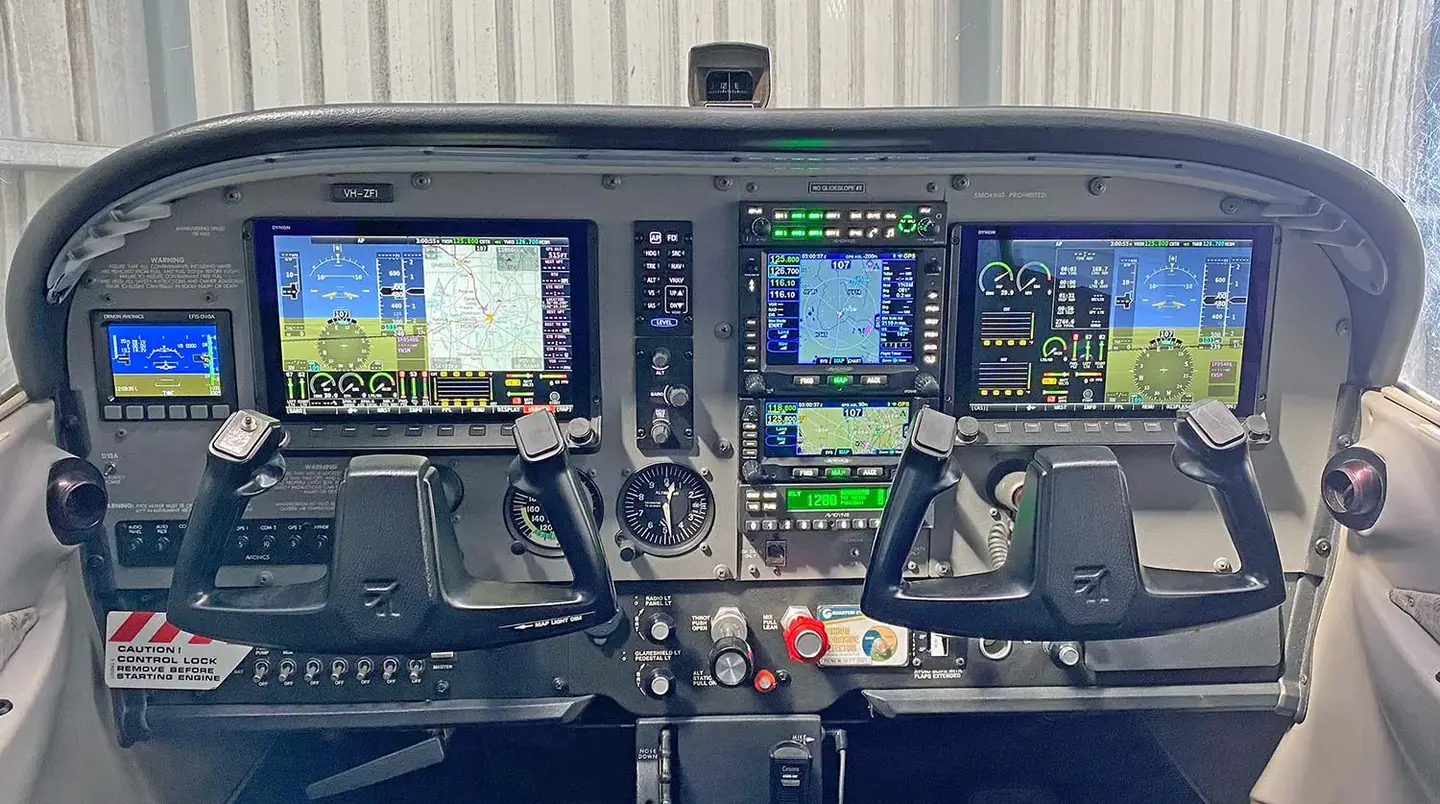Top Letters And Comments, November 6, 2020
This week’s letters brought comments from readers about machines flying airplanes, flying cars, good landings and STOL competitions.

Can A Computer Think Like A Pilot? It’s A Trivial Question
Long-suffering readers of this space are familiar with one of many YARSisms: “The very best implementation of a flawed concept is, itself, fatally flawed.” In my experience, most flawed concepts have their nexus in flawed premises. In the case of the linked video, the first flawed premise is that flying an airplane requires thought. The syllogism that this premise spawns goes something like this:
- Flying an airplane requires thought
- Machines cannot think, therefore
- Machines cannot fly airplanes
And yet they can. In fact, they do. Garmin’s Autoland is just one example.
In his absolutely excellent essay, Paul says: “In the headline, I said whether a computer can replace a pilot or not is a trivial question.” Actually, Paul’s headline asked: “Can a computer think like a pilot?” Am I picking nits? Is this a distinction without a difference? Not at all. In fact, my fundamental argument consistently has been that machines can replace pilots, precisely because flying an airplane does not require thought.
The video’s author runs full tilt with the flawed premise that flying requires thought, then attempts to convince the viewer that “machine thinking” is – and forever will be – incapable of emulating the infinite capabilities of the magnificent human mind. Paul does a great job summarizing the author’s sentiments, when he says: “We lack the imagination to accept that a machine can think because we believe only humans can do that. Only humans can recognize and respond to a novel situation beyond a computer programmer’s limited ability to account for everything. Only humans can triage closely spaced decision options and pick the right one.”
Let me pose this question: If flying an airplane can be accomplished without any thought, how germane is any computer’s lack of ability to think? Garmin’s example answers: “not at all.”
The author of the video asserts – without foundation – that Artificial Intelligence would be the way that engineers like me would attempt to do the impossible. Another flawed concept, spawned by another flawed premise.
Machine Learning probably has a place onboard certain military aircraft (warning: Skynet). But employing AI/ML aboard civil aircraft is a conceptually flawed idea (refer to earlier-cited YARSism). Why?
Because machine learning by definition includes the autonomous altering of instruction sets, as a consequence of the individual machine’s real-world experiences. Think back to your well-worn copy of The Fundamentals of Instruction: “What is Learning? Learning is a change in behavior that occurs as a result of experience.” And there’s the fatal flaw: the behavior of the machine will change, as a result of what it “learns.” Bad enough if there’s one self-taught machine in the sky. Chaos if there are thousands.
Indulge me in another YARSism: “Predictability is the foundation of anticipation.” Anticipation of others’ behavior is what allows us to navigate what otherwise would be a world of chaos.
Thus, the very concept of using AI in an autonomous aircraft control system is flawed – fatally. Consequently, there’s no point in arguing about how good some particular implementation of AI is.
A good old Expert System design is both adequate and desirable. You might want to spend three of four minutes reading this 1,200-word piece as background.
Finally (hold your applause), Larry Stencil asked: “So what happens when a two-engine whatever full of revenue PAX hits a flock of birds and both engines flame out. Are these things gonna be programmed to land in the Hudson??”
Politely, these things will react to a total lack of thrust by managing a glide to the most-benign available landing spot. In Sully’s case, that was the only open space within gliding distance – the Hudson river. But consider this: Without casting any aspersions upon Sully’s abilities, he had the good fortune of daylight VMC conditions. A machine would be able to do the deed at night, in zero-zero weather – because it doesn’t have the human limitation of needing to be able to see.
YARS
I would be surprised if AI never evolves to the point of an autonomous airliner being a technical possibility. The real question is if they will ever be ethically or legally possible, never mind whether anyone would actually want to pay to fly on one (I certainly would not). I’m sure they’d be perfectly fine as long as everything is operating normally, but what happens when everything is not normal? And what happens if one or more passengers die as a result? Who is legally and ethically responsible for those deaths? The airline, the manufacturer, the AI programmer? And that’s not even getting into the philosophical question of what’s the point of living if everything is automated (in the year 2525).
Gary B.
Air Car Makes First Flights
The problem that every flying car startup faces and, heretofore, has failed to overcome, is that flying cars tend to be the worst of both worlds. Customers are asked to pay big bucks for what is ultimately a mediocre airplane and a weird car. And all that so you don’t have to take an Uber to rent a car. It’s tempting until you really put pencil to paper and do the cost-benefit analysis. No doubt there is a niche market for this but to date it hasn’t been big enough to allow these startups to become sustainably profitable. I’ve been watching flying car concepts come and go over 25 years of flying and I just keep wondering what investors are thinking.
Brandon J.
The Samson Sky Switchblade is soon to fly as well. In order to avoid the weight of all the DOT requirements they opted to register the vehicle as a motorcycle. They have would have been flying already but the powerplant has not lived up to specifications and they have had to go with their alternative.
I lived within a 1/4 mile of the only certified airplane / car. It was located in a barn on Robert Fulton’s property in Newtown, CT. Being a pilot, I got to know Mr. Fulton pretty well and he showed me his Aerocar as well as many other inventions he had developed over the years including the sky hook.
Another interesting tidbit is that the approach to his runway was directly over my house. He was lucky a fellow pilot lived there because I never complained about a low approach over the house and kept the rest of the neighborhood pacified.
Dana N.
When A Good Landing Falls Into Your Lap—Brag
While instructing in a J-3 many years ago, I made a perfect landing. It was particularly memorable because it evolved from a really bad approach, which I also made. My student and I were at two thousand feet, practicing stalls. All was going well except for my student’s annoying habit of pulling the throttle back too abruptly, which on one occasion inspired the engine to protest with what appeared to be a gentle cough. On a summer’s day with the clamshell door wide open, communication was difficult at best. I leaned forward toward my student in the front seat and, very loudly, asked her to stop pulling the throttle back so abruptly.
She turned around in her seat, obviously confused.
Again, still loudly, I asked her to be gentle with the throttle.
“Why?” she asked over the roar of the engine and wind entering the cockpit.
“Because you might kill the engine!” I hoped my simple yet alarming answer would reach her through the roar of the wind and engine.
“I don’t understand!” Her confusion continued.
“Don’t do this!” With her hand on the knob, I jerked the throttle back to the stop with an excess of instructive energy and held it until both the roar of the wind and engine lessened, and she could at least hear me. I don’t know why, maybe because my explanation took a bit too long, but even as I spoke, the wooden propeller suddenly slowed and came to a stop, surprisingly proving my point.
My student was immediately alarmed and informed me in a really loud and worried voice that the propeller had stopped! I kept my cool and told her to hang on as I dropped the nose and accelerated to a speed I was sure would cause the propeller to windmill, but nothing happened. I stuck the nose down even further, and yet the prop was absolutely still, as if frozen in place. Finally, becoming a bit worried, I stood the J-3 on its nose and began kicking the rudder back and forth, trying to get the propeller to windmill, but nothing I did helped; it was hung up on a compression stroke. I couldn’t believe my bad luck because the ground was rapidly approaching, and I needed to move forward to Plan B! In the meantime, my student, calm and apparently resolved to her fate, turned around in her seat and told me to forget it, that the engine wasn’t going to start and that I should pick a field and land. It was too late, there was little or no altitude left to pick a proper field.
Not too far away was a field of mature oats, which I believed the Cub had little chance of reaching, but I was desperate because we were now beneath the tops of the nearest trees and there was what appeared to be a gravel road ahead of us. I told my student to hold tightly at the very same moment she yelled that there were powerlines straight ahead. I didn’t see the powerlines, but I saw the farm fence directly ahead and aimed the gear at the top strand of wire, in the process slipping deftly beneath the powerlines and dropping into the oats, our flying energy exhausted.
A few moments later, my student and I crawled from the J-3 and stared at each other, smiling, maybe even laughing, but certainly shaken, maybe even stirred. I was a bit upset with myself for trying to restart the Cub when I should have just picked a field and landed. Indeed, it was probably the worst approach I had ever made, but it was a perfect landing!
William N.
Poll: Does a STOL Competition Appeal to You?
- Both watching and being a competitor.
- No interest. Encourages wrong behavior. Extreme sport does not have a place in aviation.
- Absolutely!
- It's a fun thing to see; it got my son out with me to a AOPA Fly-in. But it's not so exciting in person, even with Draco there (as it was then), it wouldn't be a reason for us to show again.
- Risk an insurance claim? No thanks.
- I watch spot landing contests at pancake breakfasts, but all this STOL cowboy sh*t belongs on unscripted TV - so when it comes on I can change the channel.
- Yes, for about 15 minutes.
- I like the advances made by these guys in low speed technology.
- It's interesting to hear the numeric results, but not interested in observing.
- Dangerous.
- I like to watch, competition always advances technology.
- Love, Love, Love, LOVE IT!!
- It would appeal to me if it were about skill, but it's not. It's all about enough money to trick airplanes out aerodynamically.
- Someday.
- Watch AND compete!
- It's the converse of a pissing contest, by 8 years old you should outgrow it, ah...... but, we don't. Think of the great equipment invented for the "sport", everybody benefits.
- I like everything about it.
- Stupid tricks in airplanes is never a good thing.
- I'd rather do it in the wild than for bragging rights.
- Only if I can enter in my helicopter.






